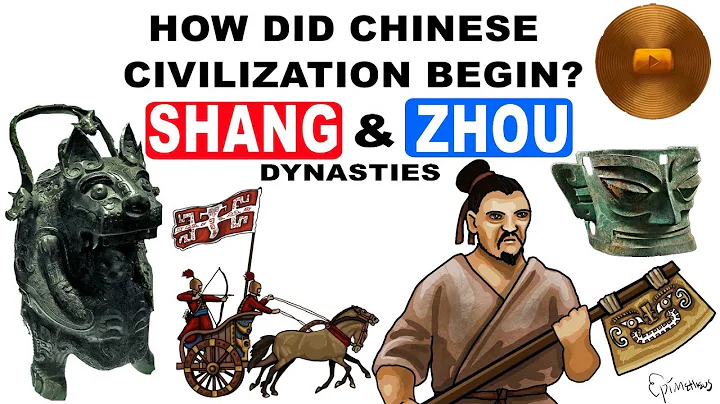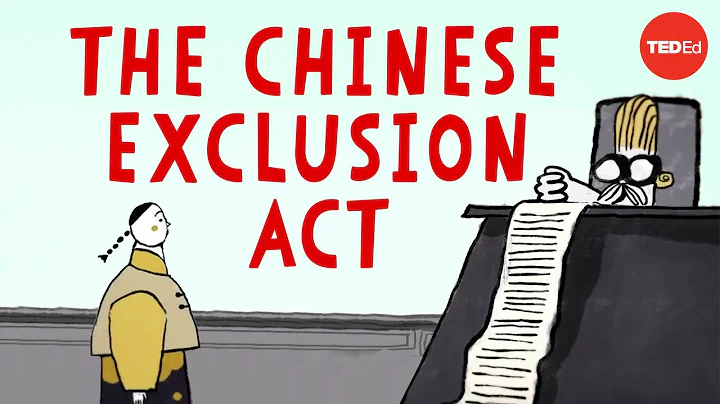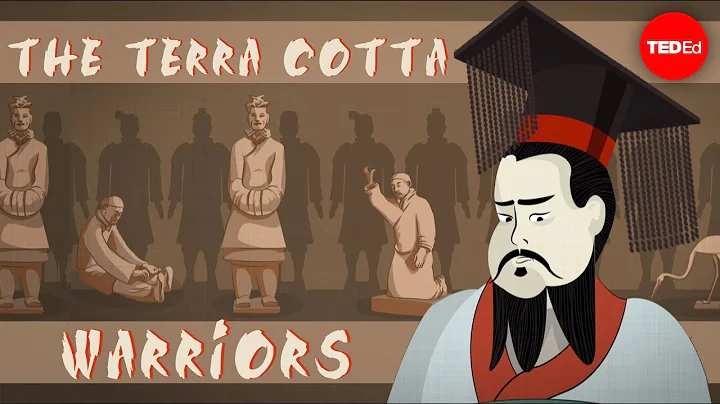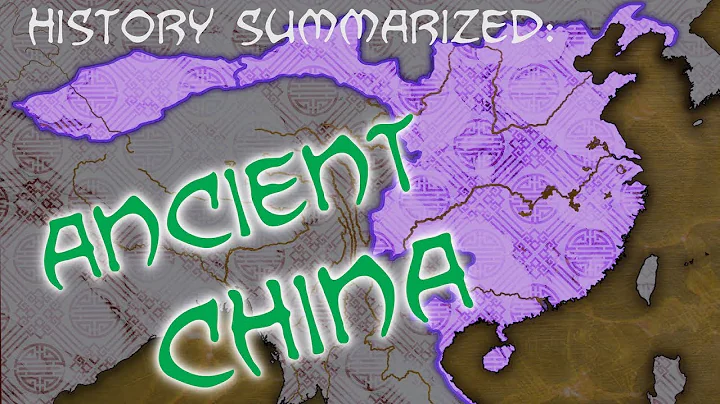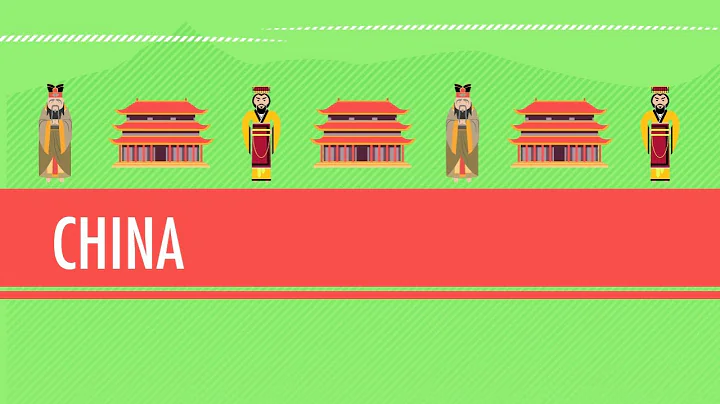The Five Hus and Sixteen Kingdoms were a short and dark era of chaos. The dynasties in this period usually had short-lived national fortunes, and some even only had a few years of life.
As the saying goes, heroes emerge from troubled times. During the Sixteen Kingdoms period, many powerful figures emerged, one of whom could be called the God of War. This man fought many battles in his life and never failed. It was not until he was sixty years old that he revolted and proclaimed himself emperor, creating a dynasty of his own!
He is Murong Chui who defeated Eastern Jin general Huan Wen . His Xianbei name was Ah Liudun. The original Chinese name was Murong Ba, which was written as Daoye.
was named Murong Chui because his brother Murong Jun could not bear to see him being favored by his father, so he asked him to change his name after his brother succeeded to the throne.
In the beginning, Murong Jun asked his younger brother Murong Ba to change his name to Murong Que, because Murong Ba had lost his front teeth during a certain battle (it seemed to be during the expedition against Goguryeo ). Murong Jun's move was a bit of a tease to suppress Murong Ba. The meaning is that its behavior is similar to "laughing at a man with missing teeth and saying that a dog's sinuses are wide open".
But after all, the name "Que" has never been beautiful, and one way of writing Que at that time was to write "Que" on the left as Chui (chui) and on the right as "夤" (夤). After Murong Jun's death, Murong Que removed the "夬" on the right side of the name "Que" and changed the name. For Murong Chui.

Picture source network
He went to the battlefield at the age of 13, bravely championed the three armies, and was a master of winning and losing on the battlefield
The modern definition of Murong Chui is: the founder of Houyan during the Sixteen Kingdoms period, a famous politician, strategist, and commander-in-chief.
Among these titles, Murong Chui deserved the most, and of course he was a military strategist. Although he had a reputation as a brave champion of the three armies as early as the age of thirteen, in terms of his military style, Murong Chui was a typical wise general, or it would not be an exaggeration to call him the first wise general in the Jin, Southern and Northern Dynasties. .
In all the battles that Murong Chui personally commanded, with the exception of the merciless siege of Yecheng, no matter whether the battle situation was favorable or not, he undoubtedly grasped the initiative on the battlefield, and his victory was without any doubt. , without any luck involved.
No opponent has ever been able to figure out what Murong Chui is doing or wants to do, but he can always see through his opponent's thoughts and actions, and even manipulate his opponent to do what he wants his opponent to do. The battlefield is always unilaterally transparent to him of.

Picture source network
No matter whether the opponent is a mediocre person like Wen Sheng, Zhai Zhao, or a master like Huan Wen, Tuoba Gui, this point has never changed! In short, he seems to be the master of the battlefield and the manipulator of victory and defeat. This is the real reason why he is called the "God of War".
His real battle to become famous was in the battle to conquer Yuwenbu, where he killed Optimus Prime Shiba Yegan of Yuwenbu. Although his performance could be regarded as the bravest among the three armies, he has not yet shown extraordinary talent in the art of command. , but the most dazzling star of the Sixteen Kingdoms era rose from this moment.
Later, Murong Chui's performance in the Battle of Fangtou, The Battle of Feishui, the Battle of Wuqiaoze, the Battle of Zhai Wei, the Battle of Xiyan and the Battle of Hepingcheng all reflected his extremely high military capabilities.
spent his whole life on horseback fighting in both north and south. He joined the army at the age of 13 and died at the age of 70. During the 58 years of war, he never lost a battle, which is amazing.
He has been undefeated in his life, and he has been so stubborn all his life. He is not at all like the protagonist in the novel
Although Murong Chui has not had any defeats in his life, his popularity has always been far lower than Han Xin , Bai Qi , Wei Qing , Huo Qubing and other famous generals.
is not only related to the particularity of his era and nation, but also has a lot to do with his personal character.
He is too complicated and twisted. He lives like a protagonist and has such hardships. He has struggled in the long river of history for so long but hastily sank to the bottom of the river. Everything about him is too depressing and sad.
has the ambition to do something big, but he has to be tortured by his inner morality. Unlike those emperors who were wise, mighty, and decisive in killing in history, he had the entanglement, infatuation, and "ridiculous perseverance" of ordinary people.
What kind of complicated person is this? If his life was made into a TV series, I would feel more deeply.
The protagonist is high-spirited and high-spirited. After his father's death, he was ostracized and framed for losing his wife, and he was depressed. There's always a chance he can make a significant contribution again when his brother takes charge.
Within a few years, his brother died of illness and was put on hold again. Later, he was ordered to do something in the face of danger, and he won a great victory and turned the tide, but in exchange he was subject to greater vigilance and suppression.
Here, it is estimated that most people have been thinking about falling out for the protagonist, but the protagonist still chose to endure it and planned to return to his hometown to stay away from right and wrong. As a result, the plan was reported to the other party by his son, and the family was almost arrested but had no choice but to defect to the enemy country.

Picture source network
In the court, no matter Murong Ping, the Queen Mother, or later Wang Meng, they could use strategies to make him embarrassed, but on the upright battlefield, whether it was Huan Wen or Beifu soldiersLiu Laozhi, The remaining famous generals of the former Qin , the same clan of the Xiyan , and the apparently powerful Tuoba clan , could not last more than a few rounds under his command.
During the Battle of Feishui, Fu Jian came to surrender when he was in trouble, but he just let him go. He would rather restore his ancestral property openly and with tenfold hardships than take advantage of others' danger. Compared with the wolfish ambition of Yao Chang and , it is considered kind.
The 59-year-old Murong Chui returned to Yecheng , and soon started a rebellion. In 386, he proclaimed himself emperor, the country was named Yan, and the history was called Hou Yan. He led the Murong family back to its peak and restored the Yan Kingdom and the ancestral foundation.
But maybe he felt guilty and never went west to capture the territory of the former Qin Dynasty.
Throughout Murong Chui's life, it can be said that there were three ups and downs, sometimes magnificent, sometimes sad, sometimes people praised, sometimes people lamented.
He spent most of the first half of his life enduring. He was really too screwed up. He was not at all like the protagonist in the novel, who spent his whole life seeking revenge, suffering from youth to old age, and then suddenly appeared. In the words of Mr. Zweig, the master biographer: Perhaps only history itself has enough writing power to write such a magnificent work.
